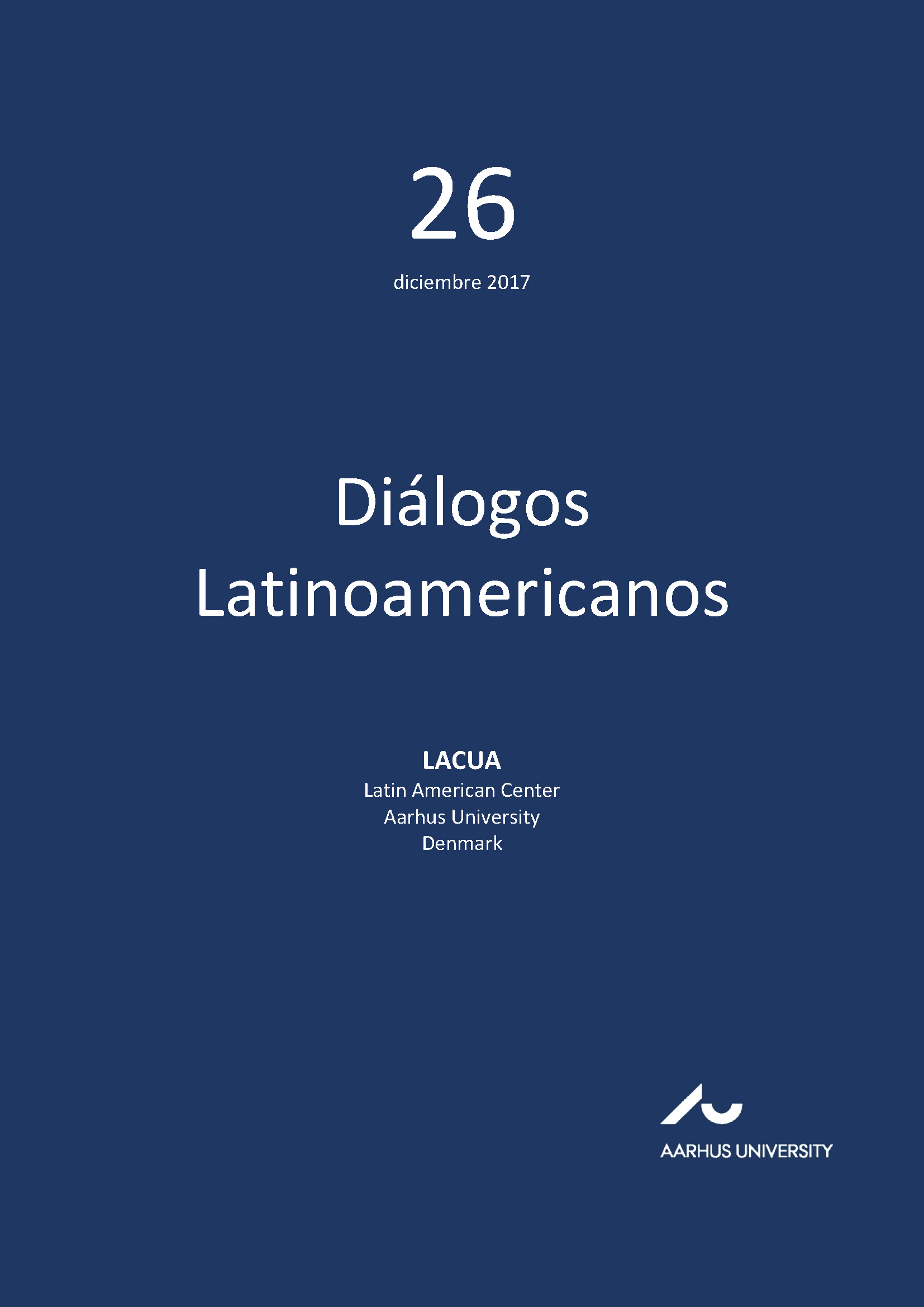Memoria agonística en El hombre que amaba a los perros de Leonardo Padura (2009)
DOI:
https://doi.org/10.7146/dl.v18i26.112734Keywords:
perpetrator, multiperspectivism, agonistic mode, rememberingAbstract
The novel El hombre que amaba a los perros does not just present one, but two men who love dogs, León Trotski and his murderer Ramón Mercader, and the plot’s point of view alternates between both of them. This paper discusses what does the perpetrator’s perspective bring to the story and proposes to focus on radical multiperspectivism, that lets the reader to understand perpetrator’s point of view without legitimising his acts, as a different ethico-political mode: agonistic mode of remembering.
References
Assmann, A. & Conrad, S. (eds.) (2010) Memory in a Global Age: Discourses, Practices, Trajectories. Houndmill, Basingstoke: Palgrave Macmillan.
Bajtin, M. (1993/1999) Toward a Philosophy of the Act. Austin: University of Texas Press.
Bajtin, M. (1984/1997) The Problem of Dostoevsky's Poetics. Minneapolis/London: University of Minnesota Press.
Cento Bull, A. & Hansen, H.L. (2016) 'On Agonistic Memory'. Memory Studies 9(4): 390-404.
Crownshaw, R. (2011) 'Perpetrator Fiction and Transcultural Memory'. Parallax 17(4): 75-89.
Eaglestone, R. (2011) 'Avoiding Evil in Pepetrator Fiction'. Holocaust Studies 17(11): 13-26.
Erll, A. (2011) Memory in Culture. Hampshire: Palgrave Macmillan.
Erll, A. (2010) 'Regional Integration and (Trans)cultural memory'. Asia European Journal 8(3): 305-315.
Erll, A., Nünning, A. & Young, S.B. (eds.) (2008) Cultural Memory Studies: An International and Interdisciplinary Handbook. Berlin: Walter de Gruyter.
Faber S. (2010) 'La literatura como acto afiliativo: la nueva novela de la guerra civil (2000-2007)', en P. Álvarez-Blanco & T. Dorca (eds.) Contornos de la narrativa española actual (2000-2010). Madrid/Frankfurt: Iberoamericana/Vervuert, 101-110.
González Martín, D. & Cruz Suárez, J.C. (eds.) (2013) La memoria novelada II: ficcionalización, documentalismo y lugares de memoria en la narrativa memorialista española. Bern: Peter Lang.
Hansen H. L. (2012) 'Formas de la novela histórica actual', en H. L. Hansen & J. C. Cruz Suárez (eds.) La memoria novelada. Bern: Peter Lang, 83-103.
Hansen, H. L. & Cruz Suárez, J.C. (eds.) (2012) La memoria novelada. Bern: Peter Lang.
Huyssen, A. (2003) Present Pasts: Urban Palimpsests and the Politics of Memory. Stanford, Calif.: Stanford University Press.
Jelin, E. (2013) 'Memoria y democracia. Una relación incierta'. Política. Revista de Ciencia Política 51(2): 124-144.
Johansen, J.D. (1998) 'A semiotic mapping of the study of literature'. Sign Systems Studies 26: 274.
Levy, D. & Sznaider, N. (2002) 'Memory Unbound: The Holocaust and the Formation of Cosmopolitan Memory'. European Journal of Social Theory 5(1): 87-106.
Lillo, M. (2013) Silencio, trauma y esperanza. Novelas chilenas de la dictadura 1977-2010. Santiago: Ediciones Universidad Católica de Chile.
Lillo, M. (2009) 'La novela de la dictadura en Chile'. Alpha 29: 41-54.
Montes, M. (2014) 'Los terrores del poder. La violencia, el crimen y el miedo en El hombre que amaba a los perros'. América 44: 137-145.
Mouffe, C. (2005) On the Political. London and New York: Routledge.
Nora, P. (2002) 'Reasons for the Current Upsurge in Memory'. Eurozine [documento WWW]. URL http://www.eurozine.com/articles/2002-04-19-nora-en.html# [fecha de consulta 17 de noviembre 2017].
Nora, P. (1989) 'Between Memory and History: Les Lieux de Memoire'. Representations 26: 7-24.
Novick, P. (2000) The Holocaust and Collective Memory. The American Experience. London: Bloomsbury.
Olick, J. K., Vinitzky-Seroussi, V. & Levy, D. (eds.) (2011) The Collective Memory Reader. New York: Oxford University Press.
Ribeiro De Menezes, A. (2014) Embodying Memory in Contemporary Spain. New York: Palgrave Macmillan.
Ros, A. (2012) The Post-Dictatorship Generation in Argentina, Chile, and Uruguay: Collective Memory and Cultural Production. New York: Palgrave Macmillan.
Rothberg, M. (2009) Multidirectional Memory: Remembering the Holocaust in the Age of Decolonization. Stanford, CA: Stanford University Press.
Downloads
Published
How to Cite
Issue
Section
License
Counting from volume 31 (2022), articles published in Diálogos Latinoamericanos are licensed under CC-BY 4.0. Read more about the license terms here https://creativecommons.org/licenses/by/4.0/.
No Creative Commons license applied on volumes 1-30. All rights reserved by the authors. Readers may download, read, and link to the articles, but they cannot republish the articles.
With the publication of volume 31 (2022), authors retain the full copyright to their articles and give Diálogos Latinoamericanos the right to the first publication. Authors also retain copyright to earlier versions of manuscripts, such as the submitted (pre-print) and the accepted manuscript (post-print).
Copyright to articles published in volumes 1-30 is held by the authors.





